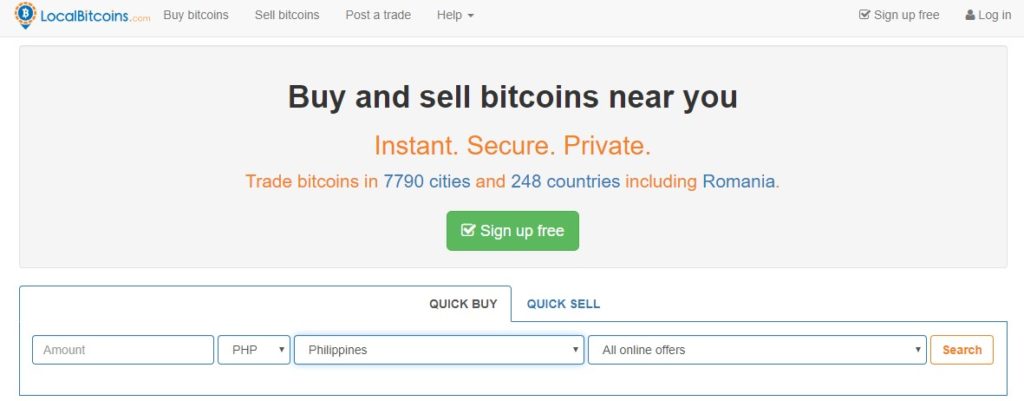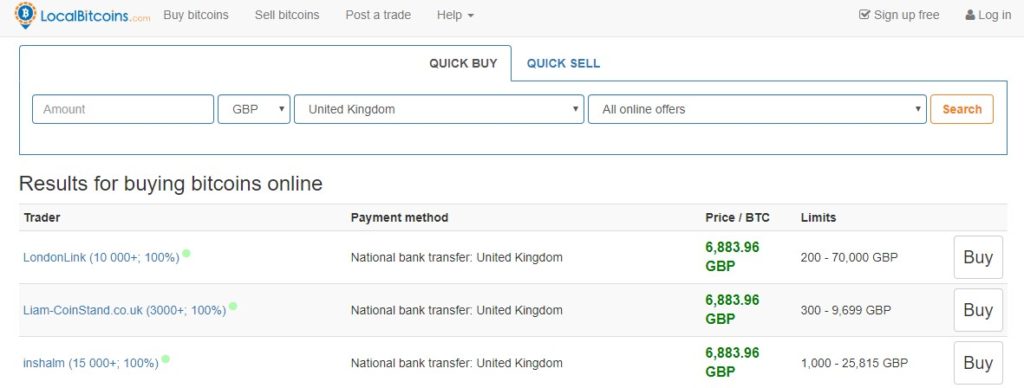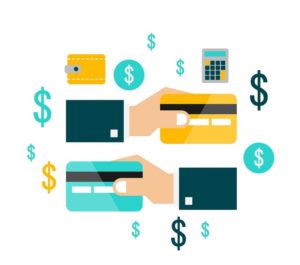LocalBitcoins Exchange Review | Fees, Security, Pros and Cons in 2019

Recently, the company launched a sister-site called LocalEthereum, which supports Ethereum P2P exchanges. What’s interesting about this company is the fact that it has not received financial backing from venture capitalists.
The platform facilitates in-person meetings or direct negotiations for buyers and sellers, which are able to use over 40 payment methods. This aspect will be discussed later in our LocalBitcoins review.
As the name suggests, LocalBitcoins only supports the trading and exchange of Bitcoins.
The website allows traders to use a wide variety of fiat currencies, including USD, EUR, GBP, AUD, CAD, CNY, and 120 other currencies.
The platform is available in 248 countries and 7789 cities all over the world. The countries that cannot be accessed because of regulatory problems and international financial restrictions include the US, China, Indonesia, Syria, Iran, and, North Korea.
The LocalBitcoins interface can be used on all major web browsers, as well as PC and tablet operating systems, such as Windows and Mac. Their mobile app is only available for Android users.
The exchange’s interface has a clean design with all its information being well-displayed, making it easy for everyone to use and find what they need without having to navigate to other parts of the site.
The Local Trader mobile app for LocalBitcoins is an open-source software for Android devices. The app has been reported to have many errors and log-in problems.

How to get a LocalBitcoins account
- Go to the LocalBitcoins website and click on “Sign up”;
- Complete the form with your username, email, password, and pass the captcha;
- Upload an identity document, such as a passport or national ID card;
- It is recommended to complete your profile once you have opened your account. Most traders will refuse to trade with you if you have an incomplete profile.

- Go to the “Quick Buy” or “Quick Sell” tabs to see the offers;
- To buy/sell BTC, go to “Quick Buy”/”Quick Sell” option and choose your country from the dropdown menu;
- Select the preferred payment method under “All Online Offers” dropdown (payment methods will be discussed later in our LocalBitcoins review);
- You will be shown a list of traders that match your filter selection;
- Select an offer from the list;
- Next to each offer, there is a “Buy” or “Sell” button. Click on the button to get to the user information page. Here you can look at the reputation of the seller/buyer of the individual, and see how many trades he has closed and honored, his overall feedback score, and status of profile verification;
- Proceed with the transaction once, you and the seller/buyer has agreed with all the terms of the transaction. You are able to directly talk to the trader to negotiate terms, such as the exchange rate, time, and place of meeting (if in person), etc;
- Leave a feedback when you have ended your transaction.
If you want to make your own trading offer, go to the “Post a trade” section.
LocalBitcoins charges a flat fee of 1% for sellers, with no fees for buyers. The merchant invoicing services offered by the platform incur a fee of 0.5% that will be taken from each invoice made.
If an external transaction is used to pay the invoice, then you will have to pay the Bitcoin network deposit fee which will be subtracted from the invoice amount.
There are no fees for account signup, the buying and selling of Bitcoins, and LocalBitcoins wallet transactions.
You will have to pay whatever transaction fee is applied by the Bitcoin network at the time.
Users have access to the widest payment method list ever offered by an exchange. Some of the included methods are:
-
 Bank transfer (ACH/ SEPA);
Bank transfer (ACH/ SEPA); - Cash;
- Credit card;
- Cryptocurrency;
- Amazon gift card;
- Google Wallet;
- PayPal;
- Square Cash;
- Venmo;
- Western Union;
- Xoom.
Deposit processing times for fiat payments depend on the selected payment method. Bitcoin is released from escrow when the seller confirms that he has received the payment. This can be problematic, as you rely on when the seller chooses to confirm the payment.
Transfer limits
LocalBitcoins users have no limits on their accounts. Members can set their own selling or buying limits and prices.

The escrow holds the money sent by the buyer, and the funds are released when the seller confirms the trade was successful.
The trading platform was hacked in 2015 through its LiveChat account, losing approximately 17 BTC from customer wallets. A year prior, a hacker broke into its servers, but LocalBitcoins alleged that no customer data was stolen. In January this year, the exchange suffered a security breach that lasted around 5 hours, with the hackers breaking into six user accounts and stealing more than BTC 7.9.
Although, unlike other exchanges, LocalBitcoins does not have to keep cryptocurrency on the platform for buyers, sellers have to use their internal wallet system for the platform’s escrow services.
LocalBitcoins’ support team can be reached on a 24/7 basis via an email ticketing system, but it has been rated to not be responsive, with users complaining that they received no reply to their emails.
In an exchange review, support is a very important aspect, as many platforms have trouble in this area.

There are many online reviews that describe how users got scammed, which has affected in time the reputation of the exchange. It is not actually LocalBitcoins’ fault if fraudsters are using the platform to rip off people. The problem is that peer-to-peer trading comes with a lot of risks, and traders should take all security precautions.
The platform also has a section where users can post fraud and scam warnings, to alert other traders of their experience and to avoid trading with those users.
LocalBitcoins.com faced a huge backlash from the community when it started enforcing stricter Know-Your-Customer (KYC) protocols in early 2018. As one of its selling points was user-anonymity, as you would only need an email to register, many users were upset that the P2P platform was imposing these rules.
Section 2.4 states that “verifying account with an ID is currently mandatory to all advertisers and users whose trading volume exceeds [a] certain limit.” The company reasons that the move was made to protect users from fraud, money laundering, criminal activities, and other illicit activities.
LocalBitcoins Review: Verdict
LocalBitcoins is an exchange platform that facilitates peer-to-peer Bitcoin trading. The fee structure is advantageous for buyers, but the downside is that there are many fraudulent traders abusing the platform and looking to scam people of their money.
Features image: wethecryptos.net
source: https://coindoo.com/localbitcoins-exchange-platform-review/
TheBitcoinNews.com is here for you 24/7 to keep you informed on everything crypto. Like what we do? Tip us some BATSend Tip now!














Article comments